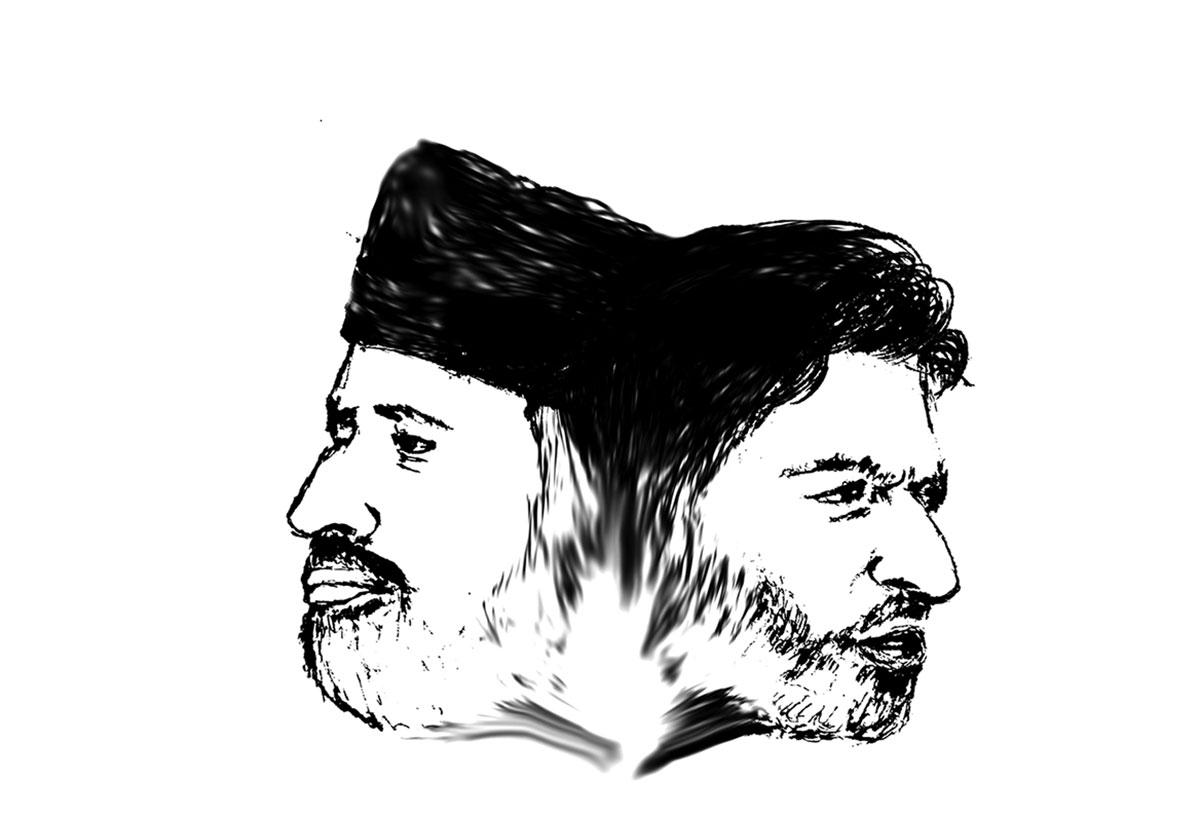by Afreen Anjum Khan
When the Home Minister Amit Shah made a historic declaration in the parliament on August 5, many here thought he had not just changed Jammu and Kashmir’s constitutional status but had also pressed the pause button on the region’s chronically layered politics. After all, the proponents of internal autonomy and self-rule were jailed and not a soul from their cadres cried on the street while the life remained crippled in Kashmir that appeared an open-air prison. Also, an assortment of actors, representing the grey areas of PDP’s and NC’s sub-nationalist narratives were subdued and compelled to retreat into their respective cocoons.

That was unlike 1953 when Sheikh Abdullah’s dismissal and subsequent arrest was immediately followed by a new brand of politics peddled by the rolling stones of Sheikh’s cadre. Within a decade those rolling stones of Shiekh’s grand old party gathered enough mass to sterilize Kashmir politics against any sway into the sub-nationalist territory, although the sterilization could last just two decades and the entrenched aspirations again cropped up by Maqbool Bhat’s hanging in Tihar jail on February 11, 1984.
Contrary to Sheikh’s displacement from the political turf in 1950s, the displacement of sub-nationalist trinity, Farooq, Omar and Mehbooba, in 2019 left the political turf lifeless for entire summer as well as the fall. As the new-year approached, the feeble political talk from the fringes evoked curiosity, forcing Mehbooba Mufti to shoot passionate tweets via her daughter Iltija and Omar Abdullah to splash across the social media his long grey beard with an ostentatious look of a stoic seer.
Mehbooba’s rhetorical assertion that if Article 370 was tampered with, India would find no one to hold the tricolor was dubbed in Delhi as a “separatist threat”. Barely one summer later, nearly two dozen of her own flock were ready to uphold the tricolor with Muzaffar Hussain Beg even walking further than that by earning highest civilian honor for his readiness to be part of the new politics.
Whether or not the rolling stones of the present era grab at least a pie from the cake, the question remains how the scions of Abdullah and Mufti families cast themselves in the new rink of politics whose rules are no longer driven by the lucrative blend of grievances and aspirations.
Ever since BJP ascended the era of unchallenged power at Delhi, the policy corridors have been itching to do away with the long tested formula of familial rule, implying Abdullahs and Muftis. It is not for nothing that Engineer Rashid shot himself to prominence with a new brand of high-voltage theatrical politics and the career bureaucrat Shah Faisal flirted with the fringes of Kashmir’s unpredictable political theatre. For all practical purposes, those currently hogging the headlines owe their name to late Mufti Muhammad Syed, who tried his luck with tactical politics vis-a-vis his rivals at home as well as the stakeholders in Delhi and Islamabad. Tariq Karra, Altaf Bukhari, Muzaffar Beg, Hassan Mir, Hakeem Yaseen et al. That is the band of “freelance politicians” whom Mufti tried to groom as the levers of his unsuccessful experiment.
RSS’s strategist on Kashmir, Ram Madhav has been repeatedly saying that a new politics would emerge when the clean and honest people come forward. Silent majority of Kashmir has long been thinking along the same lines but has been silent for obvious reasons. But the question remains, will Madhav be able to identify, much less develop, the “new, clean and honest” faces in Kashmir? Altaf Bukhari and Muzaffar Beg might be jockeying for crumbs of power and trying to outsmart each other in the race, little is yet known about Delhi’s priorities when it comes to politics in Kashmir.
For past few years a strong narrative about the futility of traditional polity has found traction among the Kashmir planners at Delhi. The J&K and Ladakh UTs being the strategic regions sharing borders with China and Pakistan, the key question right now is whether Delhi succeeds in conducting a fresh political experiment commensurate with its national security needs or will it once again copy Congress that always propped up neophytes to keep the organic politics here in leash. For the erstwhile mainstream political class, Kashmir has got so depoliticized that no room is left for straddling the tricky border between grievances and aspirations. While the political actors dither in choosing their political and moral locations, Kashmiris keep watching with a never-before sense of detachment and dejection.
(Author occasionally writes. Ideas are personal.)















